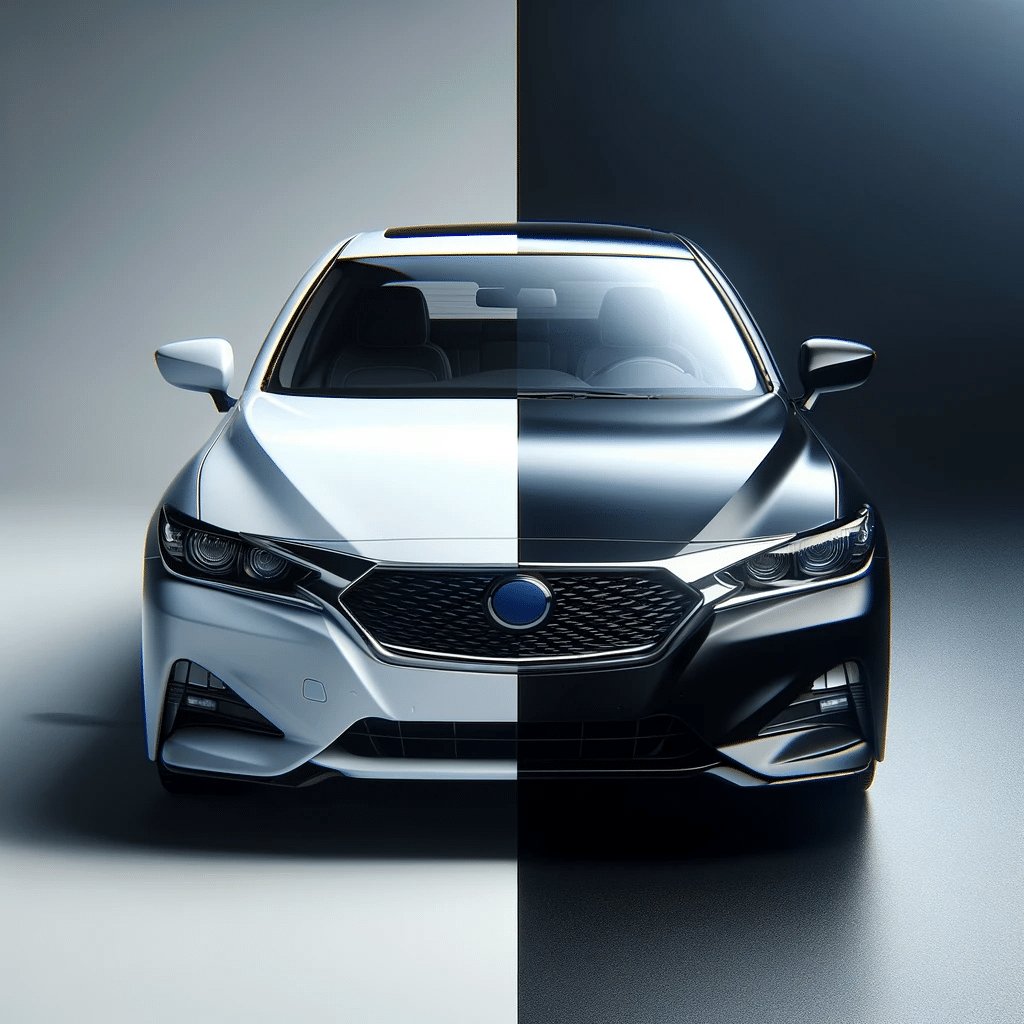
When deciding between a white vs black car, it’s essential to consider maintenance, safety, and aesthetics. White cars remain cooler and hide scratches well, while black cars offer a sleek appearance but show dirt and dents more readily. This article delves into these factors to help you choose the right car color for your needs.
White vs Black Car: Pros and Cons
| Aspect | White Car | Black Car |
|---|---|---|
| Cleanliness and Upkeep | Less maintenance, dust and scratches less visible | Dust, scratches, and watermarks more visible, requiring more frequent cleaning |
| Temperature and Comfort | Stays cooler in warm climates, more comfortable interior | Can get very hot, takes longer to cool down, less fuel-efficient due to increased AC use |
| Style and Appearance | Considered common, can appear less sophisticated | Stylish, elegant, stands out, offers a premium look |
| Insurance and Safety | Potentially safer, less prone to accidents (though not definitive) | May be more prone to accidents, no clear reason why |
| Resale Value and Popularity | Higher resale value, globally preferred | May depreciate faster, less common than white |
Maintenance and Cleanliness: Considering Ease of Upkeep
When it comes to maintaining a vehicle’s clean appearance, white cars have a distinct advantage. They tend to conceal dust, minor scratches, and the remnants of water spots better than black cars. As a result, white cars typically demand less frequent cleaning and detailing, which translates to a more convenient and cost-effective ownership experience. On the other hand, the elegant and sophisticated appearance of black cars comes with the need for more regular maintenance. The darker surface of black cars tends to highlight imperfections and residue, necessitating more effort to keep the vehicle looking pristine.
Climate Considerations: White vs Black Car in Heat Management
In hotter environments, a white car is often the more comfortable option as it reflects sunlight and retains less heat. This quality makes white vehicles a favored choice in places that experience high temperatures. Conversely, black cars, despite their sleek appearance, have a tendency to absorb heat, which can lead to a much hotter interior when left exposed to the sun.
White Vs Black Car: Aesthetic Appeal
The perception of style and sophistication is highly individual, and for many, black cars embody a sense of luxury and elegance. Black has a unique ability to confer a classic, aggressive edge to a vehicle’s appearance, making it stand out. While white is a widely chosen color and sometimes considered ordinary, a black car often commands attention with its bold and rich aesthetic. This distinction in appearance is why, despite practical considerations, black remains a popular choice for those seeking a vehicle with a statement-making presence.
Insurance and Safety: The Color Impact?
Insurance statistics have hinted at a curious trend where black cars seem to experience a higher incidence of accidents. The reasons behind this pattern are not well understood, but color visibility could play a role. Black vehicles might be less noticeable in low light conditions compared to brighter colored cars, potentially increasing the risk of incidents. This aspect of vehicle safety, while not always at the forefront, can influence a buyer’s decision when considering the color of a new car.
Market Value and Consumer Choices: Understanding the Trends
Worldwide, white is the most popular choice for car color, which often translates to higher resale value.
White vs Black Car: Choosing What Fits You Best
If your priorities include easier maintenance and a more temperate interior, then white might be the way to go. On the other hand, if you’re drawn to a more elegant aesthetic and don’t mind the upkeep, black is the clear favorite. Ultimately, the color you pick should align with your personal needs and preferences.


